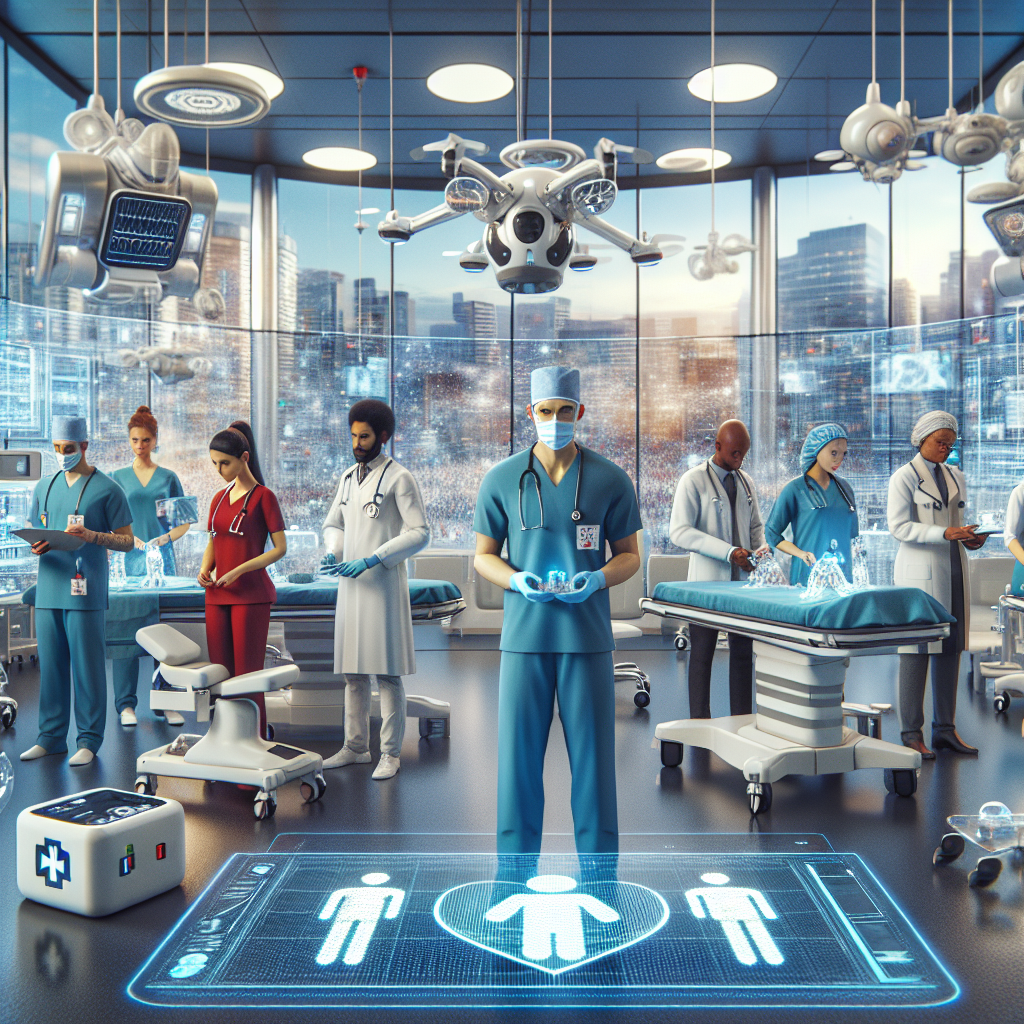Healthcare in the Future - A Glimpse into the Year 2060

Imagine you're a scientist with the ability to time-travel to the year 2060—37 years into the future. You take a trip into one possible future and witness a fictitious dialogue between a doctor and a patient in the Singapore healthcare system.

Doctor: "Alamak, Uncle Tan! You look more radiant than usual today. How are you feeling?"
Patient: "Aiya, Doctor, you know lah, I'm feeling much better. I've heard that the healthcare system in Singapore is now one of the most advanced in the world. It provides high-quality, affordable healthcare not only to Singaporean citizens but also to people around the globe. Is it true that the system maintains high-quality care while expanding globally and reducing costs?"
Doctor: "Eh, Uncle Tan, of course, it's true lah! The government has continued to invest heavily in healthcare infrastructure, research, and education. This has resulted in a highly skilled and competent workforce of healthcare professionals. We have the most impressive healthcare system in the world!"
Patient: "Wah, really ah? That's a major breakthrough. Can you tell me more about the global expansion?"
Doctor: "Certainly. Singapore has established a reputation as a global leader in healthcare innovation and remote medical delivery. This success is due to continued investment in healthcare infrastructure, education, and research. We have a highly skilled and experienced workforce capable of delivering world-class care at lower costs. Additionally, the country has forged strong partnerships with other nations, providing consulting services and sharing expertise to develop healthcare systems around the world."
Patient: "That's truly amazing. I'm concerned about accessibility and affordability though. Is healthcare expensive here?"
Doctor: "Don't worry lah, Uncle Tan. Healthcare costs less than a cup of kopi-o here. Advances in technology, such as artificial intelligence, robotics, and telemedicine, have streamlined processes and improved efficiency. This allows healthcare providers to deliver high-quality care at lower costs. Additionally, advancements in medical research have led to the development of new treatments and medications that are more affordable and accessible."
Patient: "Oh my gosh! I like the sound of that! Can everyone benefit from these advancements?"
Doctor: "Absolutely. Singapore has embraced a more patient-centered approach, shifting towards a preventative and holistic healthcare model with a greater emphasis on promoting healthy lifestyles. This approach is likely to improve patient outcomes, increase patient satisfaction, and reduce healthcare costs over time."
Patient: "It sounds like healthcare in Singapore in 2060 is very promising. I'm glad I can benefit from these advancements today and perhaps even live to celebrate my 100th birthday."
Doctor: "Absolutely, Mr. Tan. Our goal is to provide the best possible care to all our patients. Singapore's best-case healthcare scenario for 2060—characterized by advanced technology, personalized care, a focus on prevention, and a high level of accessibility and affordability—bodes well for patients worldwide. Remember, the key is to stay healthy and happy at a low cost. Jia you!"